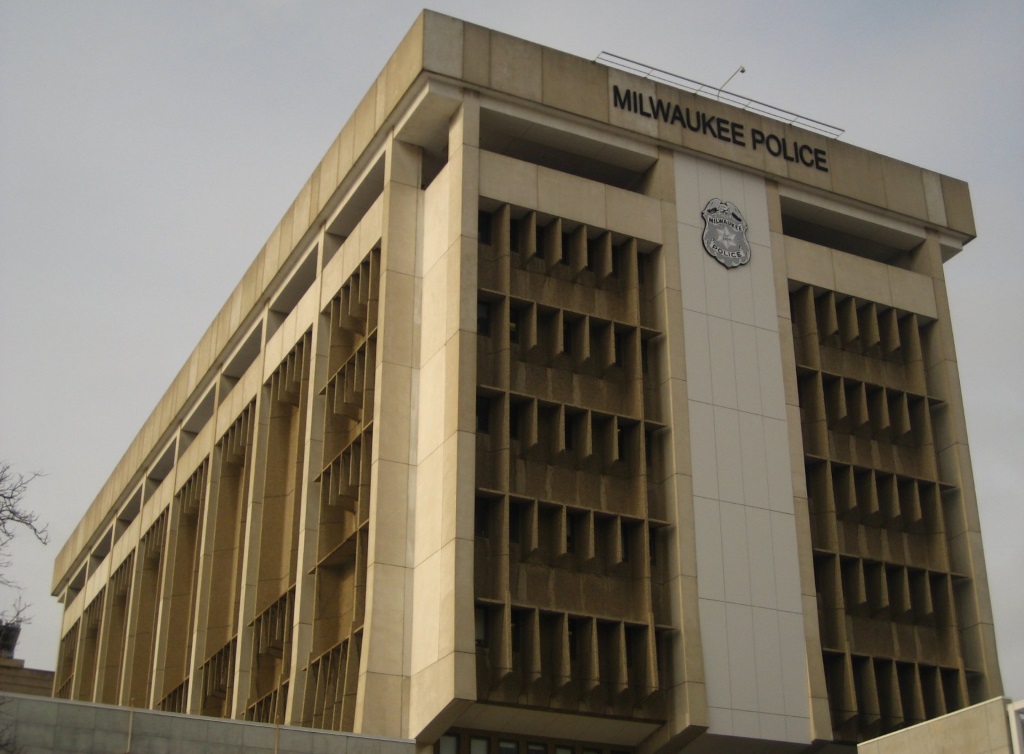City Should Reject Federal COPS Grant
What sounds like community oriented policing will really expand the War on Drugs.
The Common Council must reject the $9.7 million Community Oriented Policing Services (COPS) Grant on December 15; otherwise, the Milwaukee Police Department will dedicate 27 veteran officers to Task Forces in the DOJ’s Operation Legend Initiative, and 3 to ATF Task Forces for the next 4 years. That would be a surge in the War on Drugs masquerading as Community Oriented Policing. Acceptance of the grant would require that 30 new officers be hired; and, apparently by virtue of simply becoming an MPD member, they would be doing Community Oriented Policing. Is the MPD doing Community Oriented Policing now?
The origin of the COPS Grant is the infamous 1994 Crime Bill; the one the County Board resolved to repeal, and Joe Biden used to brag about. From 1995-1997 the MPD used COPS Grant money to hire approximately 500 new officers and, with many of them retiring in the next few years, the City is looking at an $80-90 million increase in its annual pension obligation beginning in 2023. The City is facing a choice now: defund the police, or plant the seeds of a future pension deficit?
The MPD didn’t post their application for the COPS Grant on the City’s Legistar system, but it is required to:
(1) include a long-term strategy and detailed implementation plan that reflects consultation with community groups and appropriate private and public agencies and reflects consideration of the statewide strategy under section 503(a)(1);
What is the MPD’s “long-term strategy and detailed implementation plan”? What community groups did the MPD consult with? Did these community groups say they wanted more federalization of local law enforcement and that integrating 30 MPD veterans more tightly with the FBI, USMS, HIDTA, DEA and the ATF was their strategy for Community Oriented Policing? I doubt that is what the people in groups like: MICAH, WISDOM, ComForce MKE, The People’s Revolution, BLOC, LIT and the AART, who aren’t advocating defunding the police, have in mind when they think of Community Oriented Policing.
The COPS Grant would fund the MPD’s participation in Operation Legend, which is just another surge in the failed War on Drugs – it has nothing to do with Community Oriented Policing. It is doublespeak to use an acronym like COPS to imply that the funds will go to Community Oriented Policing; when, in reality they will go towards perpetuating a cat and mouse drug prohibition game that has devastated millions of lives and thousands of communities over the last 50 years.
The MPD wants the Common Council, and the rest of us, to believe that all they have to do to honor the requirements of the COPS Grant is hire 30 new officers – but what is their Community Oriented Policing Strategy? They brought a draft of a Community Oriented Policing Standard Operating Procedure to the FPC’s Policies and Standards Committee on July 30 without soliciting any input from the community. In the last few months however, the newly reconstituted Community Collaborative Commission has begun to make its presence felt by working with MPD leadership to make some modest changes to the SOP.
The notion that the MPD has a clearly defined and implemented Community Oriented Policing strategy via which – by default – every new member becomes an active participant, is wishful thinking. The idea that the MPD can satisfy the Community Oriented Policing requirements of the COPS Grant by simply hiring 30 new members and reassigning 30 veterans to work with its “community partners” in the FBI, DEA, USMS, HITDA and the ATF for yet another Drug War surge, is deceptive. It’s a bait and switch. It’s doublespeak.
The Common Council must reject the COPS grant. Alders should send the MPD back to the drawing board to come up with a real Community Oriented Policing strategy in collaboration with its real community partners. In the meantime, the Common Council should reconvene the Milwaukee City-County Heroin, Opioid and Cocaine Task Force with a mandate to investigate the collateral damage the war on drugs is causing in Milwaukee.
Paul Mozina, a retired IT professional and community activist.
Op-Ed
-
Wisconsin Candidates Decry Money in Politics, Plan to Raise Tons of It
 Dec 15th, 2025 by Ruth Conniff
Dec 15th, 2025 by Ruth Conniff
-
Trump Left Contraceptives to Rot; Women Pay the Price
 Dec 8th, 2025 by Dr. Shefaali Sharma
Dec 8th, 2025 by Dr. Shefaali Sharma
-
Why the Common Council’s Amended Budget is Good Policy for Milwaukee
 Nov 20th, 2025 by Alds. Marina Dimitrijevic and Russell W. Stamper, II
Nov 20th, 2025 by Alds. Marina Dimitrijevic and Russell W. Stamper, II




















In his analysis Mr. Mozina has successfully pummeled a straw horse.
While everything Mr. Mozina has stated may be correct, and while I may agree with much of it, none of it has to do with a decision to accept the COPS grant. That decision can be made with the answer to a very simple question- do Milwaukee taxpayers want to pay $10 million dollars for approx. 30 police officers or do we want federal money to do so? The simple answer to that question is – yes! Everything else is noise. This is a classic case where the proposed “solution” by Mr. Mozina and others doesn’t fit the problem. Keep working towards reform and sensible solutions that create a “peace dividend” to invest in reviving the community ( do investigators on the license investigation unit really need to be sworn officers??) but don’t turn down much needed property tax relief for Milwaukee citizens while you’re doing it.
Correction –
“Pummeled a straw man”
What I appreciate most about this piece is the laser-like focus on the need for significant reform of our policing practices and the dangers of perpetuating an ill-conceived, disastrous, and endless “war on drugs”. Absolutely, we must be diligent and watchful so that Manichean drug warriors and militarized officers don’t dominate our civic space and dialogue on issues of public safety. That has been the trend for the last forty years, and it certainly needs rolling back.
However, I wonder if this grant doesn’t represent $10 million of leverage that can be used to move MPD more in the direction of community policing. Is the Common Council able to attach conditions to acceptance of this grant? For example, since the application calls for a “long-term strategy and detailed implementation plan” on the development and execution of community policing, could it be required that this be produced within a certain time period in order to receive the funds? And if not followed through on, could MPD be forced somehow to forfeit the funds?
Similarly, I wonder if there could be oversight and conditions placed on this to ensure that the officers hired are restricted to certain roles related to community policing, and explicitly prohibited to engage in the kind of drug enforcement that has the most adverse impact on our community. I’m not so well-read on the details of the grant, but would be interested to know what discretion local government can exercise.
I share mdamat’s concern that turning down available money is at best questionable. Efforts to reform our policing practices will require more investment across the board – not only in non-police solutions, but also in re-training, re-deploying, and re-orienting our existing police force. If we can accept these funds and apply them to the actual needs of the city, rather than further the agenda of what someone in the DOJ thinks constitutes “policing” in Milwaukee, they should be accepted.
Alderman Ashanti Hamilton introduced CC File No. 201121 for the Public Safety and Health Committee agenda for Monday December 14. A prelude to the vote on the COPS Grant By the full Common Council on the 15th.
201121
Substitute resolution relating to the conditions under which the Milwaukee Police Department may accept and expend funds under the Community Oriented Policing Services Grant from the United States Department Of Justice.
https://milwaukee.legistar.com/LegislationDetail.aspx?ID=4706762&GUID=9F8D5EBC-E0FB-4AF4-AB5C-EF0B4B43ED73&Options=ID|Text|&Search=201121
This is the latest version of the new Community Oriented Policing Standard Operating Procedure.
https://milwaukee.legistar.com/View.ashx?M=F&ID=9001564&GUID=E39D1536-924D-4805-80D3-3DB15CC38467
Thanks for the links and the info, Paul.